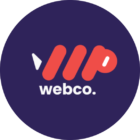There are many social media platforms available today, each with their own unique features and audience. It can be difficult to determine which platform is the best for generating quality leads, as the best platform will depend on your specific business and target audience. However, here are some general tips to consider when choosing a social media platform to focus on for lead generation:
Consider your target audience
Different social media platforms have different demographics, so it’s important to choose a platform where your target audience is likely to be active. For example, if you are targeting younger demographics, platforms like Instagram and TikTok may be more effective, while LinkedIn may be more effective for targeting professionals.
Look at the types of content you can share:
Different social media platforms have different formats for content, so it’s important to choose a platform that aligns with the types of content you want to share. For example, Instagram is primarily a visual platform, so it may be more effective for businesses that have a strong visual brand or product. LinkedIn is a more professional platform, so it may be more suitable for businesses that want to share longer-form content such as articles or case studies.
Analyze the features available
Each social media platform has its own set of features that can be used to reach and engage with your target audience. For example, LinkedIn has features like LinkedIn Groups and LinkedIn Ads that can be used to connect with and target specific groups of professionals. Instagram has features like Instagram Stories and Instagram Reels that allow businesses to share more casual, behind-the-scenes content.
Evaluate the cost:
Some social media platforms, like LinkedIn, have paid advertising options that can be used to reach a wider audience. It’s important to consider the cost of these options and how they fit into your overall marketing budget.

Ultimately, the best social media platform for generating quality leads will depend on your specific business and target audience. It may be helpful to experiment with multiple platforms to see which one works best for your business.
Consider the level of engagement:
Some social media platforms have higher levels of engagement than others. For example, Instagram tends to have higher levels of engagement compared to Facebook or LinkedIn. This can be a key factor in generating leads, as higher levels of engagement often lead to more visibility and ultimately more leads.
Look at the level of targeting options:
Some social media platforms offer more advanced targeting options than others. For example, LinkedIn allows businesses to target users based on job title, industry, and location, which can be helpful for targeting specific groups of professionals. Facebook also offers a range of targeting options based on demographics, interests, and behaviors.
Evaluate the integration with other marketing tools:
If you already have a marketing stack in place, it’s important to consider how well a social media platform integrates with your other tools. For example, if you use a marketing automation platform, you’ll want to choose a social media platform that integrates well with that tool.
Analyze the ROI
Ultimately, the main goal of lead generation is to generate leads that convert into customers. It’s important to consider the return on investment (ROI) of each social media platform you are considering. This may involve tracking the number of leads generated, the conversion rate of those leads, and the overall revenue generated from those leads.
By considering these factors, you can make an informed decision on which social media platform is the best fit for your business and lead generation efforts. for More informations Book a free Consultation from our marketing professionals

